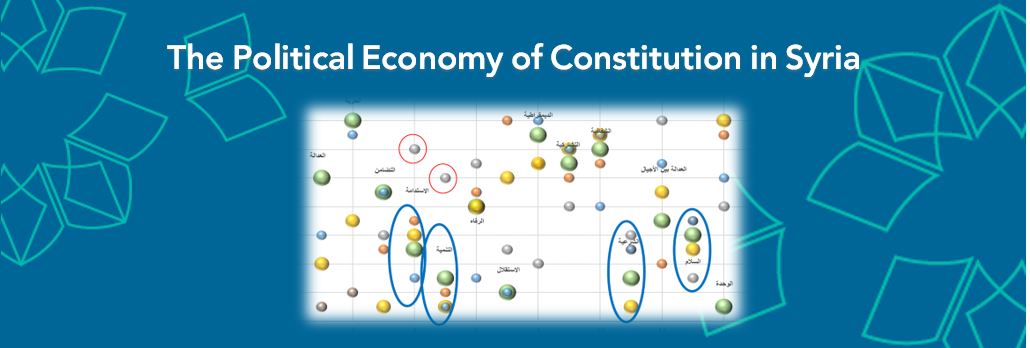The Political Economy of Constitution in Syria

On the 28 and 29 of January 2022 the Syrian Center for Policy Research (SCPR) conducted the sixth roundtable of the Development Policy Forum titled ” The political economy of constitution in Syria”
which also acts as a prelude and preparatory meeting for the Inclusive Civil Society Dialogue, an initiative by SCPR to bring together civil society actors and experts to identify development challenges, priorities, and ways to enhance the role of civil society in their formulation and then implementation. This requires discussing alternative options for development policies to overcome violence and fragmentation, such as dismantling the components of conflict economy and transforming it into an equitable, productive and inclusive economy.
The “Political Economy of Constitution” roundtable is a continuation of the dialogues that started in 2019, which focused on dismantling the conflict economies by using the political economy as a framework for analysis and proposing options for moving from conflict to a possible convergence that guarantees peace and sustainable development. The political economy of the constitution, in light of the national and international polarization and the ongoing military conflict, provides a different approach to building the steps towards the constitution in comparison to the contractual or normative methods of drafting the constitution.
The political economy of the constitution framework is based on an analysis of actors, strategies, and social relations within society, taking into account the role of regional and international external powers. The proposed approach assumes the unfeasibility of drafting the constitution without a broad participatory process to discuss the grievances and inequalities arising before and during the conflict, and the development of mechanisms to build gradual multidimensional social congruences on the most important issues that intersect properties and interests of various groups and societal actors. The approach looks for multiple levels of overlap and congruence apart from the current political or identity polarization. These gradual participatory social congruences ensure an increasing role for society in shaping its future and strengthening the foundations of solidarity, justice, freedom, and sustainability.
In this roundtable, which is based on a participatory research method, the participants contributed to identifying the sources of power for the key local political actors in addition to the civil society in general. They assessed the influence of regional and international actors on the local actors, also they identified the key priorities for each of the active actors. The participants read the weights and priorities of the actors and discussed the areas of congruence and its possibility. They also discuss the gap between civil society priorities and different local and external actors as a key step to build a civil society strategy to engage different actors into gradual congruences. Different research tools have been tested during the roundtable, the results and tools will be subject to a forthcoming working research paper and more open public discussion.

